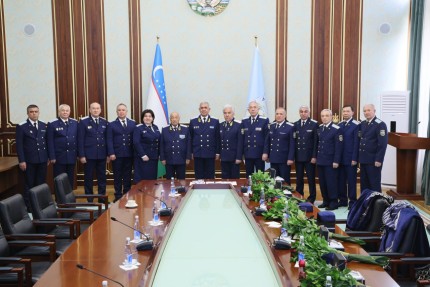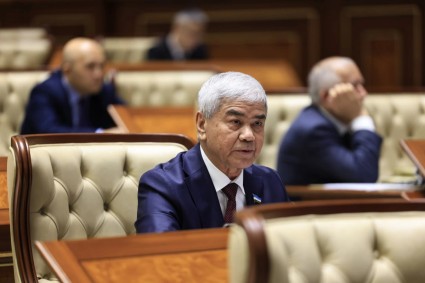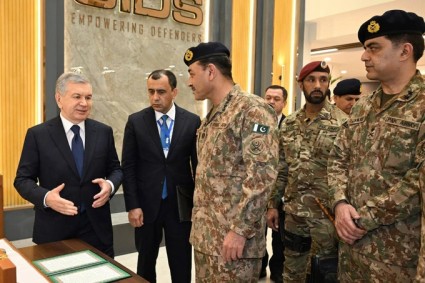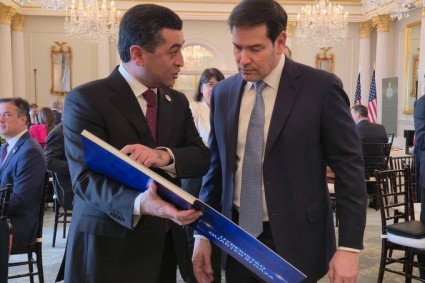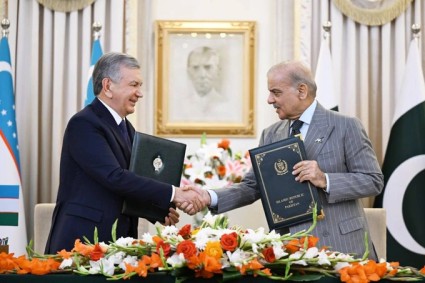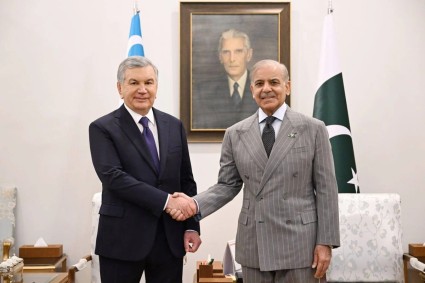President Shavkat Mirziyoyev by the January 22 Decree has approved the 2018 State Program for the Year of Support of Pro-Active Entrepreneurship, Innovative Ideas and Technologies aimed at implementing Uzbekistan's Development Strategy for 2017-2021.
The draft program was posted for public consultation from January 10-20. The commentary to the decree notes that 4,400 proposals and comments were received from citizens.
Following the consultation, it was decided to reflect some legal norms on pressing problems proposed by many citizens directly in the text of the decree, and not in the State program, which means that they shall take effect immediately.
These norms, for example, include one of the most discussed items of the program - lifting the many-year old, controversial ban on employment of nationals without temporary or permanent residence permit, as well as scrapping employers' liability for employing such citizens.
A two-year moratorium for inspection of financial and economic activities of business entities has been declared starting from the date of publication of the decree.
The program consists of 5 sections. The State Program provides for the drafting of 37 laws (Electoral Code and Public Service, Protection of Personal Data, Rights of Persons with Disabilities, Science, Innovation Activities Laws, etc.), adoption of legal acts and implementation of 52 practical measures covering various areas.
1. Improving the system of governance.
A key step will be the adoption of Civil Service Law. The document, making the public service truly prestigious in the first place, will also contribute to the creation of decent pay and social protection of civil servants, and will also raise their responsibility for the state of work in the entrusted area. Every civil servant will have to prove every day that he is worthy of his post.
Major decentralization of state functions and powers will be carried out. Firstly, some of the government’s functions, especially in the field of licensing will be transferred to ministries, agencies, as well as to local authorities. Secondly, the powers of khokims (governors, mayors) of all levels will be substantially expanded.
The ultimate goal is to make sure that khokims have real powers, which will in fact allow to speed up the socio-economic development of the territories and to raise the well-being of the population.
System of e-petitions will be introduced as a new mechanism of democracy and realizing the rights of citizens to participate in the governance. It will allow citizens to put forward concrete proposals to the representative bodies.
Thus, the principle: "The most important decisions in the country will be taken through direct dialogue with the people" will be put in practice.
2. Ensuring the rule of law and further reforming of the judicial and legal system.
It is planned to prepare Criminal and Criminal Procedure Legislation Development Concept for 2018-2021 with the aim to review the limitation period for bringing a person to criminal liability. It provides for liberalization of criminal and administrative liability, improvement of procedural norms.
To enhance the judicial control over the preliminary investigation, the right to issue a search warrant and to tap telephone conversations will be transferred to courts.
In order to prevent violations of human rights, pre-trial detention centers and penal institutions will be equipped with video surveillance.
The state program provides for measures to simplify the propiska system. In particular, citizens who do not have permanent residence permit in Tashkent city and Tashkent province will be able to purchase real estate on the secondary market.
3. Economic growth and support to proactive entrepreneurship.
Gradual transition to a new model of innovative development, based on innovative ideas, smart technologies and know-how is envisaged with a view of economic liberalization.
Legal frameworks will be developed for creation and development of venture funds, venture financing, as well as mechanisms to stimulate the introduction of innovations and new technologies into the economy.
Until January 1, 2023, tax privileges will be granted to venture funds, high-tech start-ups, research institutions, innovation centers, and design institutes for income received from sale (hand-over) of their own new technologies.
To ensure transparency and legality of the allocacation of land plots, it is planned to introduce e-trading. It is also envisaged to create a system for sale of state-owned assets through electronic trading platforms.
The legislation on banks and banking activities will be totally reviewed, with digital banking, Internet banking and other modern technologies to be introduced.
It is planned to continue work on improving and optimizing the tax and customs policies, cutting taxes, simplifying tax and customs administration.
Particular attention will be paid to promoting the tourism sector, stimulating the development of inbound and domestic tourism, to simplifying administrative and visa procedures for tourists.
4. Development of the social sphere
Legal regulation of issues related to the "consumer basket" will be provided in order to determine the amount of income required for decent living conditions of the population. A step-by-step transition to the system of wages, pensions and other social payments taking into account the "consumer basket" is planned.
Work will continue to improve the system of public health care. It is planned to introduce the system of "smart medicine", innovative technologies in health care.
It is planned to create and open 2,000 social pharmacies that will provide high-quality medicines at affordable prices.
2,000 km of fiber optic communication lines will be laid in remote areas for full coverage of the population with telecommunications services, increase in the Internet speed by 2.5 times and the introduction of more than 4,000 mobile communication base stations are envisaged.
5. Ensuring security, interethnic harmony and religious tolerance, implementing of balanced, mutually beneficial and constructive foreign policy
State Policy Concept on cooperation with expatriates will be developed and adopted.
It is planned to implement a set of measures for the social rehabilitation of radicalized citizens, improving the system for returning such citizens to a healthy environment.
The religious education system will be revised to make it more effective, especially among the youth.
A total of 13.5 trillion soums and 1.3 billion US dollars will be allocated for the measures stipulated in the 2018 State Program.







